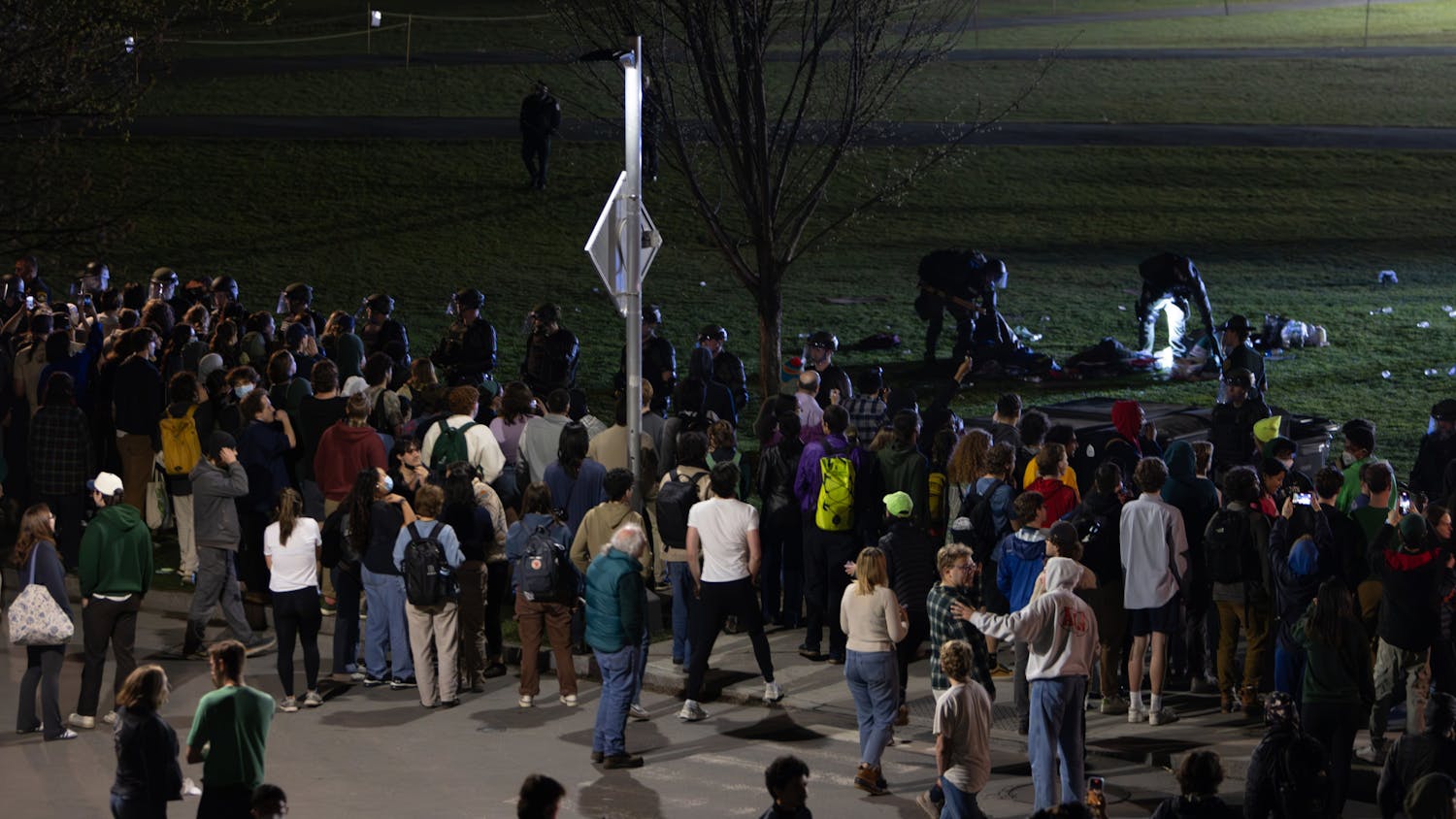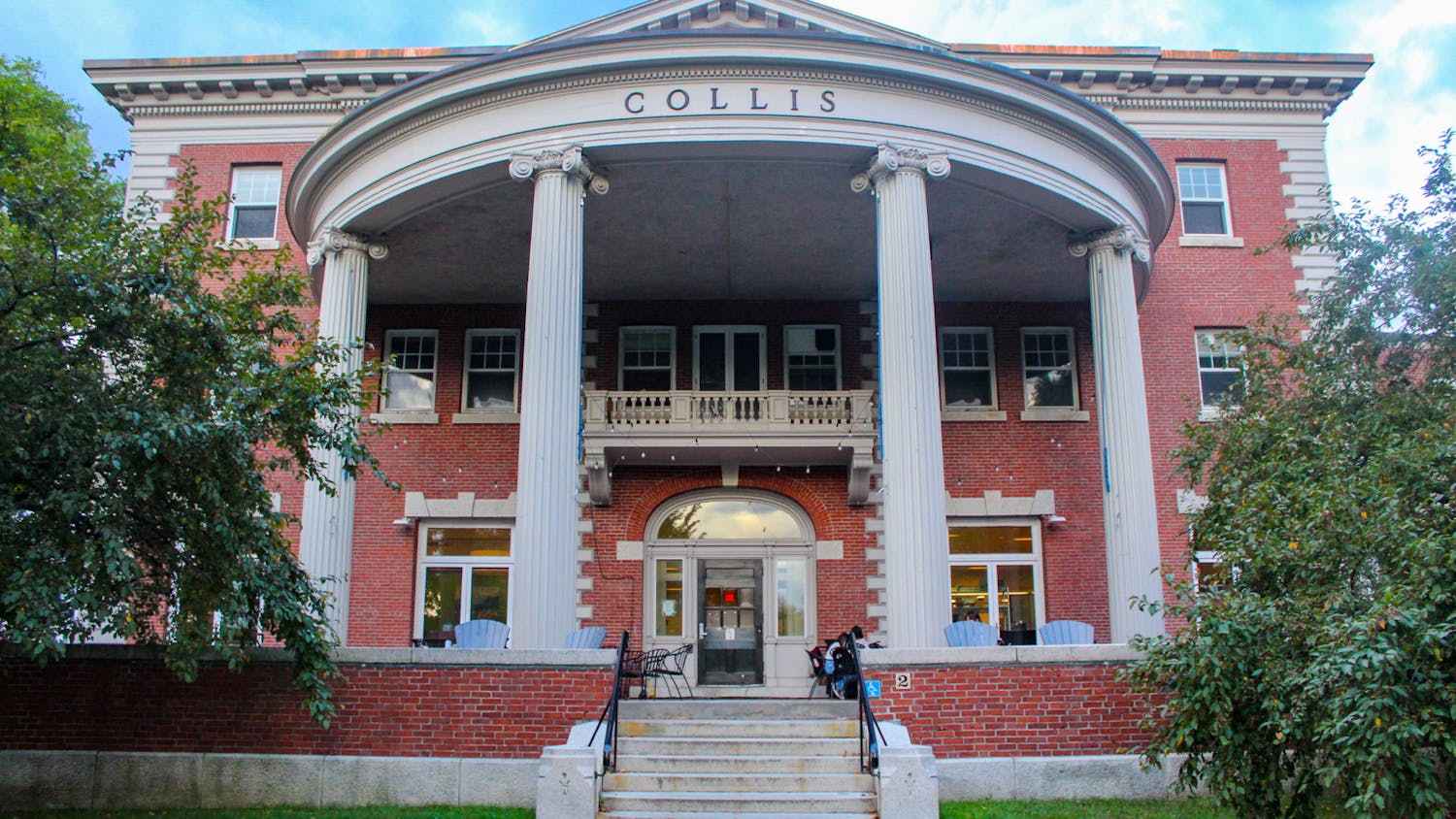For a full slideshow, click here.
About 13,500 people gathered on the Green Sunday morning to celebrate Commencement, at which 1,116 students received undergraduate degrees.
In her address to the graduates, screenwriter Shonda Rhimes ’91 emphasized the importance of action over dreams, maintaining perspective and understanding that no one is perfect.
Rhimes urged graduates to take chances and to be themselves. She challenged the message that graduates should follow their dreams. Dreaming until one fulfills all of his or her dreams, Rhimes said, is “crap.”
“A lot of people dream, and while they are busy dreaming, the really happy people, the really successful people, the really interesting, engaged, powerful people, are busy doing,” she said.
At Dartmouth, Rhimes said, her dream was to be like Nobel Prize-winning author Toni Morrison, and in trying to emulate Morrison, she wound up living in her sister’s basement. To challenge herself, she decided to apply to and then attend the University of Southern California’s film school.
Years later, Rhimes said, she had dinner with Morrison, and all Morrison wanted to talk about was “Grey’s Anatomy,” Rhimes’s hit television show.
“That never would have happened if I hadn’t stopped dreaming of becoming her and gotten busy becoming myself,” she said.
Rhimes reflected on her own graduation, when she had been hungover during the address and had started to cry when her mother packed up her room.
She noted that outsiders see college graduates as “at the bottom of the heap” but urged the Class of 2014 to acknowledge the privilege of their degree.
Dartmouth graduates, she said, have been given the gift of an incredible education and must pay it forward by devoting time each week to a cause they love. “Hashtagging,” she said, is not real action.
“Whether you’re a legacy or the first in your family to go to college, the air you are breathing right now is rare air,” she said. “Appreciate it.”
Rhimes also spoke to balancing work and personal life, saying that those who say they do everything perfectly are liars.
“If I am killing it on a ‘Scandal’ script for work, I am probably missing bath and story time at home,” she said. “If I am at home sewing my kid's Halloween costume, I’m probably blowing off a rewrite I was supposed to turn in.”
Though she can never be perfect, her dual role as a worker and parent has made her a better, more fulfilled person, she said. She said this lesson applies to both men and women.
In addition to Rhimes, four experts in fields ranging from astrophysics to creative writing received honorary degrees: Pulitzer prize winner and Columbia University history professor Eric Foner, astrophysicist and 1990 MacArthur “genius grant” winner Margaret Geller, entrepreneur David Kelley and novelist and professor of creative writing at Ohio University Zakes Mda.
At the ceremony, Hanlon delivered his first-ever Dartmouth Commencement address. He noted that the setbacks and accomplishments of the class, saying the “unforgettable ’14s” were challenged intellectually, socially and physically.
Though life after college is hard, he said that graduates were ready to take on the world’s challenges because they “forged resilience” at Dartmouth.
“You may not feel ready to leave, but you are ready to succeed,” he said.
The ceremony began with a processional of the Class of 1964, administrators, faculty, trustees, honorary degree recipients and degree candidates. Religious and spiritual life director Rev. Nancy Vogele then gave an opening prayer before deans conferred degrees.
Five students — Serena Liu ’14, Jonathan Pedde ’14, Ethan Portnoy ’14, Natalie Salmanowitz ’14 and Ezra Toback ’14 — earned 4.0 GPAs and shared the valedictorian honor.
Salmanowitz was the only valedictorian to speak. She addressed the importance of details, passion and authenticity at Dartmouth.
At Dartmouth, she said, as long as you are enthusiastic about something, “people will listen."
"Dartmouth allows us to follow whatever path we wish, and I'm constantly inspired by the fervor that people have for the things they do," she said. "I've learned it's the passion that most people find compelling, not the cohesiveness of your life story."
She concluded by encouraging graduates to take what makes Dartmouth special with them when they leave, to pursue their own interests whether they follow a linear pattern or not and to stay genuine.



